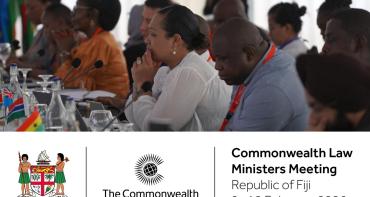Experts from around the Commonwealth have been meeting in London this week to craft legislative guidance on how to effectively regulate the use of virtual currencies which will allow member states to reap the benefits of the new technology but also guard against its abuse.

Experts from around the Commonwealth have been meeting in London this week to craft legislative guidance on how to effectively regulate the use of virtual currencies which will allow member states to reap the benefits of the new technology but also guard against its abuse.
The aim is to produce a draft document covering areas such as criminal misuse of the currencies, taxation, consumer protection issues, financial services as well as procedural powers relating to misuse of the currencies.
The experts were following up on the first Commonwealth stakeholder meeting in February 2015 which recommended that a report on the prevalence and impact of virtual currencies be produced.
There's concern about the growing number of virtual - or cryptocurrencies - available over the internet. As of April 2018 there were more than 1,565 - a figure that increases by the day. One of the most famous is Bitcoin which describes itself as "an innovative payment system and a new kind of money".
Investors have poured billions of dollars into virtual currencies in recent years and wooing investors to their products without clear safeguards.
Shadrach Haruna, the project coordinator and a Legal Adviser with the Commonwealth, said: "The work is timely given that the cutting-edge, distributed ledger technology (DLT) underlying virtual currencies is as useful to criminals as it is to honest consumers”.
“Our aim is to assist and provide regulatory guidance for member countries to adopt to enable them maximise the benefits of the innovation and at the same time reduce its associated risks," he added
Steven Malby, Head of the Office of Civil and Criminal Justice Reform said: “This work will give countries options for both promoting the benefits of virtual currencies, as well as addressing any possible risks.”
This effort is expected to provide a pathway for member countries to consider addressing any shortcomings in their existing legislation covering virtual currencies, including general criminal law, money laundering, proceeds of crime, taxation, financial services and consumer protection.



